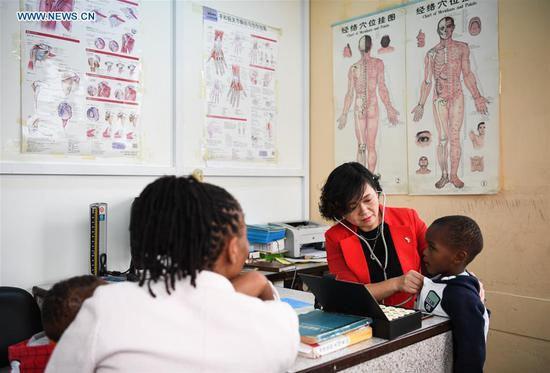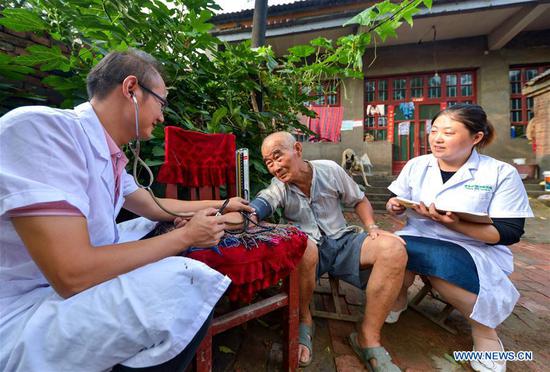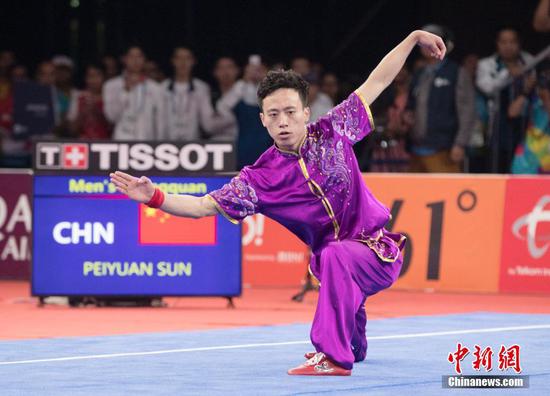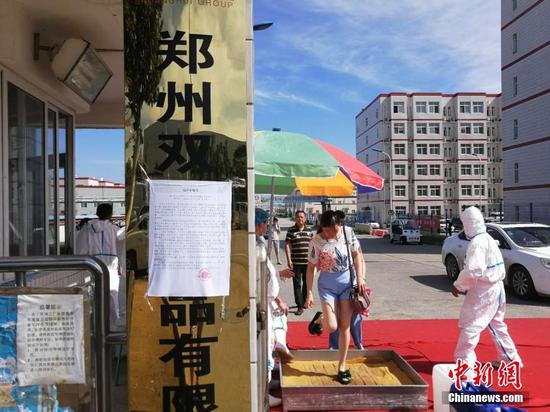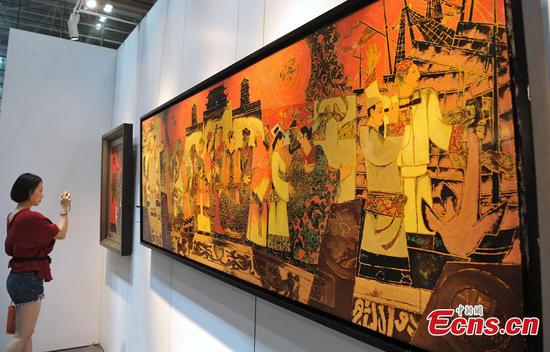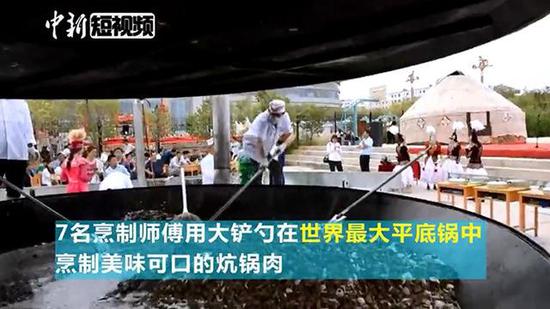There is a huge talent gap in the domestic integrated circuit (IC) industry, a sector the country has been striving to promote recently, but experts believe the gap could be overcome by offering more competitive salaries, strengthening related education and cultivating interdisciplinary talent.
According to an industry white paper released on Saturday, the talent pool for China's IC industry was about 400,000 at the end of 2017, but China needs 320,000 more to fill the gap and meet the development demand in the domestic IC industry.
However, only around 30,000 students who graduated in related areas would choose to work in the IC industry after graduation, the paper said.
Experts noted that talent is vital in this area, since experienced workers in the sector can solve critical problems that might otherwise delay the development pace of the whole industry.
Geng Bo, vice secretary-general of the China Solid State Lighting Alliance, a semiconductor industry association, told the Global Times on Sunday that due to the late start of the semiconductor industry in China, the shortage of talent has long been a problem in the sector.
Also, "the increasing restrictions foreign countries continuously impose on China" and the problems at ZTE, which has been hit by US sanctions, have created the need for faster development of the domestic industry, said Xiang Ligang, chief executive of telecom industry news site cctime.com. This makes the talent shortage problem more conspicuous, according to Xiang.
Data from the China Semiconductor Industry Association showed that in the first quarter of 2018, China's IC industry continued to maintain rapid growth. From January to March, the sales volume reached 115.29 billion yuan ($16.77 billion), a year-on-year increase of 20.8 percent.
Geng noted that given the strong growth momentum at present, the domestic chip sector has an urgent need for more talent.
"Previously, the total production capacity of semiconductor fabrication plants in the mainland could not compare with that of a single plant owned by a company like Taiwan Semiconductor Manufacturing Company. But thanks to the government's strong backing, there are currently more than 20 such plants under construction, and all of them will need professionals with five to 10 years of industry experience," Geng said.
However, the fact that students graduating from domestic universities have limited practical experience means that these newly built plants must seek overseas talent, Geng noted.
Possible solutions
The white paper suggested that in order to cope with the scarcity of talent, China should vigorously develop vocational training and carry out related educational projects.
Experts said the problem has to be solved through developing an industry-university-research cooperation system, in a bid to prepare a talent pool for the industry, although this might take some time.
"Salaries in the semiconductor industry have been increased in the past few years in a bid to attract more talent, and I would say we are offering quite competitive remuneration," Geng said.
Xiang said that China could also cultivate some cross-disciplinary talent from similar fields, especially the packaging and testing sector, which requires less complicated technology.
"This could not only shorten the training cycle, but also cultivate talent for the industry," Xiang noted.










